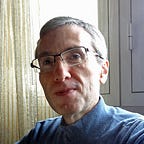Panspermia, Octopuses, and Comets 4/6
Interstellar bacteria and mass extinctions
Bacteria from space
Regarding the incredible replication power of bacteria, in their 1999 book “Astronomical origins of life,” Hoyle and Wickramasinghe wrote (page 101):
Start with a single living cell, say a bacterium. A typical doubling time by binary-fission for a bacterium supplied with appropriate nutrients would be two or three hours. Continuing to supply materials, the initial bacterium would generate some 2⁴⁰ bacteria in 4 days, yielding a culture of the size of a pinhead. Continuing for a further 4 days and the culture, now containing 2⁸⁰ bacteria, would have the size of a village pond. Another 4 days and the resulting 10¹²⁰ bacteria would have the scale of the Pacific Ocean. Yet another 4 days and the 10¹⁶⁰ bacteria would in quantity be comparable to a molecular cloud like the Orion Nebula, and another 4 days, bringing the total time interval to only 20 days, and the scale in quantity would be that of a million or more galaxies. In a year there would be some 2³⁶⁵⁰ bacteria and in a thousand years the total would be 2³⁶⁵⁰⁰⁰⁰ bacteria. Thus biology yields superastronomical numbers as well as depending on them.
The two authors were convinced that interstellar dust clouds teemed with microbial life, whose signature…
